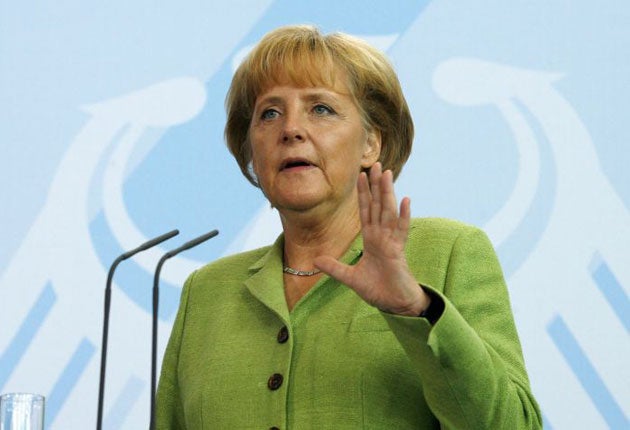Merkel named most powerful woman in world (again)

Germany’s Chancellor Angela Merkel was today named the world’s most powerful woman for the third year in succession by the US magazine Forbes although the accolade was largely ignored by her home nation which already refers to her as “Mrs World”.
Forbes nevertheless praised the conservative German leader for the way she "bulldozes through controversy: hosted the Dali Lama, chastised Mugabe and wants to make the euro a bigger player in global financial markets as the dollar wanes." The magazine also lauded her for her commitment to the environment by advocating steep cuts in greenhouse-gas emissions, resulting in her place at the top of its 2008 list of the world's 100 most powerful women.
Mrs Merkel came out ahead of Sheila Bair, head of the US Federal Deposit Insurance Corporation which has been grappling with the global ructions triggered by America's sub prime crisis. Indra K. Nooyi, the chief executive of Pepsi Co came third. Condolezza Rice, the outgoing US Secretary of State dropped down the rankings from 4th to 7th.
Forbes gave Mrs Merkel credit for reforms in Germany which the magazine said had cut the country's previous record post-war unemployment and led to an economic upturn. Yet it failed to mention that the reforms in question were introduced by Gerhard Schröder, her predecessor as Chancellor. Indeed, some outsiders have argued that Mrs Merkel's unwieldy grand coalition government of conservatives and Social Democrats has forced her to make a string of compromises which have effectively rolled back economic reform.
Mrs Merkel's Green credentials are dulled by a German car industry committed to the manufacture of powerful gas-guzzling vehicles and opposed to speed limits on the country's legendary Autobahns. Also on the down side, her government has been criticised by its Nato allies for failing to send troops to southern Afghanistan.
However there is little doubt that Chancellor's successes as an international mediator and her outspokenness on human rights issues are the main reasons for her record popularity in Germany where an opinion poll last month found that 62 per cent of voters thought that she was doing a "good job".
Initially dismissed as a dowdy east German without dress sense and incapable of making an effective political speech, Mrs Merkel has gone from strength to strength since being elected Chancellor by a wafer thin majority in 2005. Her unpretentious, straightforward style has won her a reputation as a powerful and effective negotiator. Within the EU she has managed to broker important solutions over financing, carbon emissions and the controversial European constitution.
She has rebuilt Germany's badly damaged relationship with the United States which she inherited from Mr Schröder through his opposition to the Iraq war. Unlike her predecessor, she has also taken a tougher stand with Russia and China on human rights..
Mrs Merkel has taken the credit for negotiating global carbon emissions targets that were ratified at this year's G8 summit in Japan. In Germany, the conservative media has already declared her "Mrs World" and refers to her as the undisputed Queen of the EU.
And her record popularity suggests that she will win next year's German general election hands down. However her personal standing is not matched by her party which currently has the support of only 37 per cent of the electorate.
Join our commenting forum
Join thought-provoking conversations, follow other Independent readers and see their replies
Comments
Bookmark popover
Removed from bookmarks